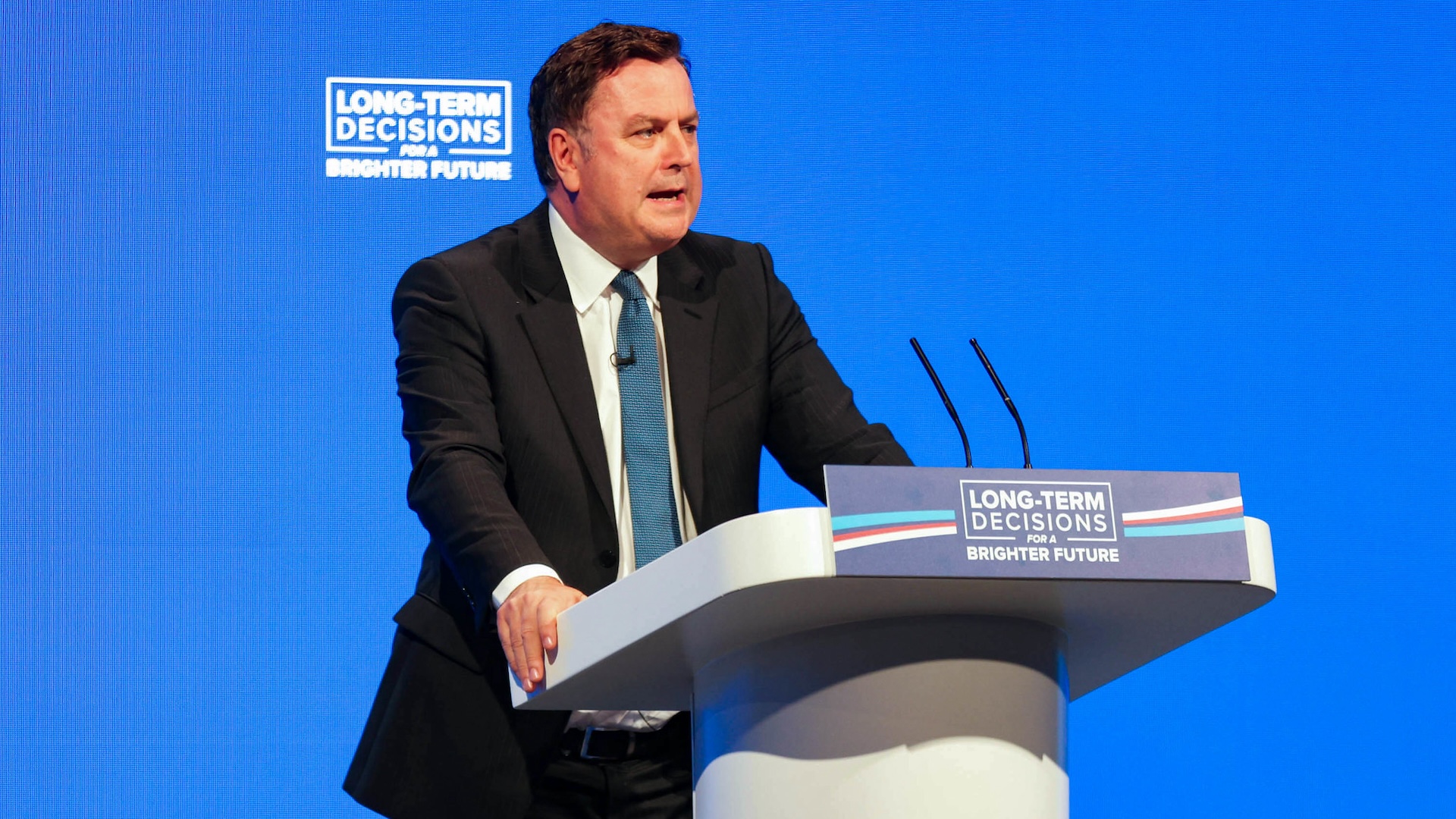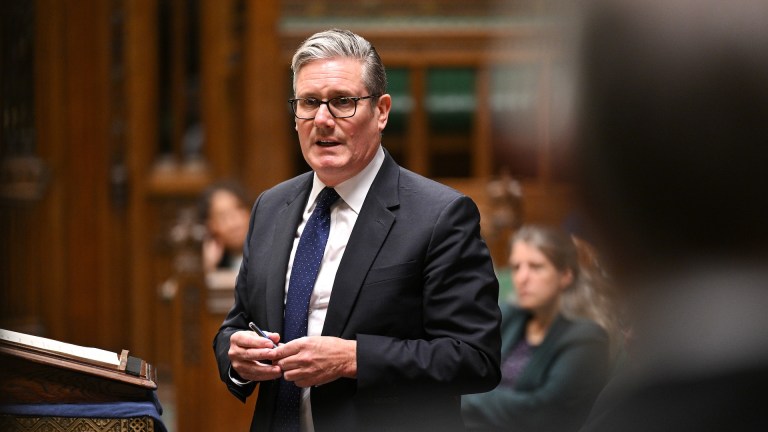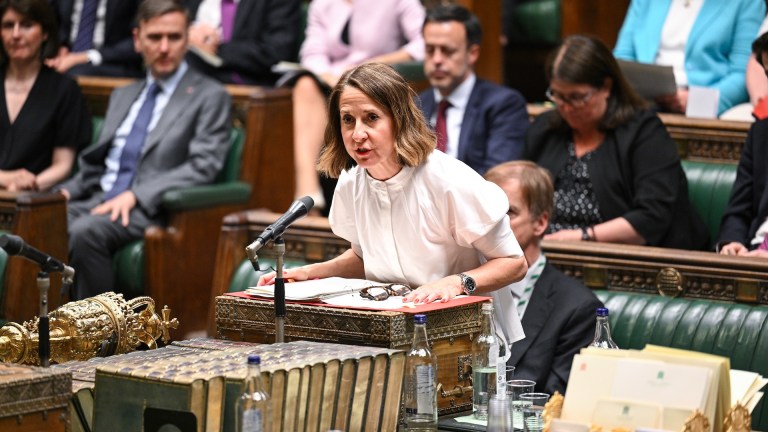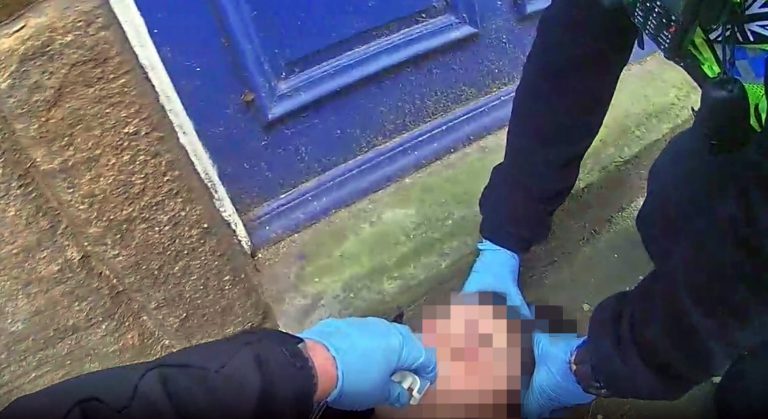The government has said the disability benefits bill is rising at an “unsustainable rate” because the number of people claiming for mental health conditions has soared. It has also previously announced plans to increase conditionality and sanctions to meet Rishi Sunak’s aim of eradicating what he calls a “sick note” culture.
The latest plans could mean that people with depression or anxiety could lose access to sickness benefits.
Nadia Whittome, the Labour MP for Nottingham East, said: “Three years ago, I had to take a leave of absence from this role because I have PTSD. The insinuation that mental health conditions are not debilitating, that they don’t affect your ability to go about your daily life or go to work, that they don’t incur additional costs, could not be further from the truth.
“The prime minister’s comments about so-called ‘sick note culture’ and the changes that the government is proposing will do nothing to help people with mental illnesses. It will just make their lives harder. So I ask, why is the government setting back the clock on the acceptance of mental illness as a disability instead of truly tackling the crisis in mental health support?”
Stride replied: “It pains me to say this every point that I’ve come to the dispatch but serious mental illnesses are very real. I take them very seriously. I say to the honourable lady, this is where I say we need a grown-up conversation. We need a proper conversation about this.
“If at every stage whenever a minister says we need to look at a particular area, that their motives get impugned in the way that the honourable lady has by inferring that what I’m actually saying is that mental health conditions should be trivialised in any way, I am most definitely not.”
Advertising helps fund Big Issue’s mission to end poverty
There are now 2.6 million people of working age claiming PIP and disability living allowance (DLA) – with 33,000 new awards for PIP each month, which is more than double the rate before the pandemic. This is expected to cost the taxpayer £28bn a year by 2028/29, a 110% increase in spending since 2019.
But as campaigners have pointed out, cuts to public services and benefits in real terms have led to a surge in poverty and ill-health. Benefits cuts will not eradicate this problem. Instead, they are likely to push more people into dire straits and cost the taxpayer more money in the long term.
The proposals have also seen criticism from politicians within Stride’s own party, including from Conservative MP Stephen McPartland.
He said: “There are 2.6 million people who would have heard that statement today and their families will be absolutely terrified. I think a lot of people will feel this is just about providing some kinds of cuts to services and I believe we need to try and support these people and put compassion at the heart of our welfare system.
“There are reports of up to two million people waiting for mental health treatment at the moment, so does the secretary of state believe that in this compassionate review where we’re going to have this grown-up conversation, we can see more money invested so those two million people will get mental health support?”
Stride acknowledged that McPartland raised “important points” but reiterated: “We need to have a grown-up conversation about these matters if we are to provide better support.”
Advertising helps fund Big Issue’s mission to end poverty
These plans are likely to be a long way off, and the Conservative government may no longer be in power by the end of this year. It is unclear whether Labour will take up the proposals.
Keir Starmer has criticised the government for changing their own scheme but he as not ruled out following Conservative proposals and has stressed his support for welfare reforms which “support people back into work”.
“They designed it and put it in place and now 14 years later they say it’s not working, so there’s an element of farce to it,” he said. “But obviously we’ll look at the details when they come.”
Rebecca Long-Bailey, the Labour MP for Salford and Eccles, said: “The secretary must understand that the rhetoric coming from government over the last few weeks has been brutal, it’s been divisive and it’s been inducing unimaginable terror in the two thirds of people already in destitution who have a chronic health condition or disability, and the prospect of further cuts is making the situation worse.
“So can the secretary confirm today whether he expects overall government spending to be reduced, by how much and what assessment has he made of how his proposals might affect those who are already facing material deprivation?”
DWP secretary Stride did not confirm whether government spending on PIP would be reduced or by how much, but he said: “The presumption that the honourable lady makes is that the alternative to consulting on a different and potentially much better way forward is doing nothing at all, and to me that is unacceptable.
Advertising helps fund Big Issue’s mission to end poverty
“In terms of making sure that we truly support those that need the support, I’ve already given that reassurance at the dispatch box. It is made very clear in the consultation that there will be people who need more support than they’re receiving at the moment, but we need to have that conversation in order to get the best outcome.”
But charities and campaigners disagree that these proposals will lead to the best outcome for vulnerable people.
Anela Anwar, chief executive of anti-poverty organisation Z2K, said: “PIP provides vital additional support, helping people pay for extra costs their health condition or disability causes in and out of the home, and reducing the poverty they face.
“Pretending that home adaptations or talking therapies can eliminate those costs overnight is the latest evidence of the DWP’s ill-informed approach to disability benefits. It either doesn’t understand, or doesn’t care. Demanding disabled people evidence the specific extra costs they face will cause an impossible administrative burden, while giving vouchers instead of cash would be degrading and dehumanising.”
On average, disabled households (with at least one disabled adult or child) need an additional £975 a month to have the same standard of living as non-disabled households, according to Scope.
Anwar added: “It’s clear these proposals have been dreamt up with no serious input from people with lived or learned experience of the reality of disability benefits. Long overdue measures like reducing unnecessary assessments could be introduced on their own. But ministers are instead set on redefining disability and wrongly claiming mild anxiety gets you extra benefits, rather than tackling the root causes of poor health.
Advertising helps fund Big Issue’s mission to end poverty
“The DWP has long denied seriously ill and disabled people the support they need through its abysmal decision-making. Now it wants to make it official. This green paper should be consigned to the shredder, and politicians from all parties need to speak out against it.”
Do you have a story to tell or opinions to share about this? We want to hear from you. Get in touch and tell us more.










